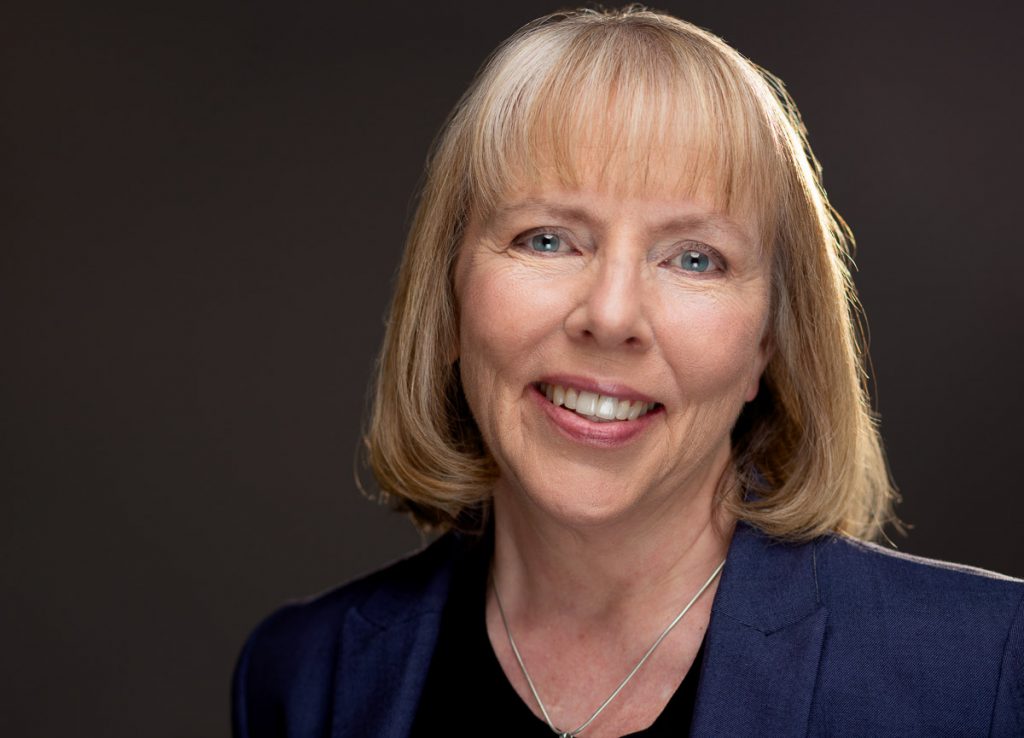Posted October 12, 2022
The Interview – Sally Stubbs
Sally Stubbs
Sally Stubbs is an award-winning playwright, screenwriter, and educator who sometimes acts, directs, and produces. Much of her writing is inspired by true stories, both personal and historical. Her plays include: Our Ghosts, Wreckage, Herr Beckmann’s People, And Bella Sang With Us, Centurions, Spinning You Home, and Polly in the Penthouse. Sally studied and performed theatre in Canada and abroad. She completed a Master’s degree in Art History and Writing at UVic, where she also taught playwriting. She is particularly pleased to have received the Canada Peace Play prize for Herr Beckmann’s People and a Prime Minister’s Award for her work with youth and theatre, and to be a co-founder and advisor of the CASA Project, which aims to support women playwrights living in South Africa. Sally, her partner, and their crazy kitty live in Vancouver, but spend as much time as possible on Vancouver Island.
Sally, many of your plays explore interesting eras in history: And Bella Sang with Us takes place in 1912 and is based on the story of Vancouver’s first female police officers; Herr Beckmann’s People deals with a family during WWII and its aftermath; Wreckage’s story centres on a train crash in 1924; Spinning You Home takes us all the way back to the BC Gold Rush of the 1860s. What is it about these past eras that inspires you to write about them? Why do you think audiences love to see the past evoked onstage?
I grew up in a house of readers and storytellers, including my larger-than-life grandfather who fled Northern Ireland on a cattle boat when he was seventeen. In Canada he became a journalist. In search of truth and story, he took on adventure, e.g., partying with the notorious Grey Owl and traveling with bootleggers based in Moose Jaw on a run across the U.S. border and back. His reporting extended to the Manitoba Legislative Assembly members who at one point decided to turn the tables and report on the journalists. They voted my grandfather “the most fearless reporter.” As a child, I wanted to be just like him. A part of me still does.
The stories I grew up with were often inspired by history, primarily my family’s. I was a kid who loved Canadian history up until the day I encountered Social Studies in school. I couldn’t believe it was possible to render our stories dull, lifeless, and virtually women-free. I think that’s why I write these plays. I want to explore little-known Canadians, events, and issues in a way that brings them to life, building on truth and the magic of imagination, while exploring our heritage and humanity – the good, the bad, and the ugly. I think audiences love to see the past evoked onstage when the seeds of imagination and truth conspire to bring complex historical characters and events to life in a way that also speaks to who and where we are now.
Your most recent play, Our Ghosts, deals with history of another kind, personal history. Would you tell our readers something about the play, and about the writing of it?
Virtually all my writing is inspired in some way by personal history, and no matter how different the stories—drama, dark comedy, cop/mystery, musical—they always feature a disappeared person. Our Ghosts is directly inspired by the true story at the root of my obsession with the disappearance of those we love.
When it was clear that my beloved mom wasn’t going to live too much longer, I asked for and received her enthusiastic permission to write the story that changed our lives forever. My dad, Flying Officer Gerald Stubbs, and his co-pilot, Flying Officer James E. Miller, mysteriously disappeared in a routine instrument flight from Comox RCAF Base in British Columbia on March 22, 1956. Inspired by that event, Our Ghosts, at its heart, is a testament to the love and tenacity of a woman determined to uncover the truth and a daughter’s journey toward learning to live with her ghosts.
I began writing Our Ghosts in the last, difficult years of my mom’s life. I’d take my research and text into my writing groups and cry. My colleagues were incredibly kind and generous. Their encouragement helped me to embrace my vulnerability, dig deep, and eventually find the shape, tone, voices, movement, and magic of the world inhabited by characters who are, yet aren’t, my family. It was a long, demanding, and, ultimately, beautiful way to grapple with love and loss.
Your screenplay Centurions has garnered a lot of international awards! Recently it won the Best Unproduced Script award at the New Wave Film Festival in London, England, was an official selection of the Toronto International Women Film Festival and the LA Independent Women Film Awards, was awarded Best Feature Script at Slovakia’s Kosice International Film Festival, was a finalist at the Art of Brooklyn Film Festival and at the Santa Barbara International Screenplay Awards and a Top Ten finalist at the Emerging Screenwriters Genre Competition, as well as being named a Gold Script Writing winner at the WRPN Women’s International Film Festival. How did you go about adapting the play to a screenplay? What are the challenges of writing in a new medium?
The work on the Centurions screenplay has been a blast and a great learning experience. Like many writers, I stalled during the pandemic. Then I thought, why not revisit the pilot I had begun to adapt from my women cop play, And Bella Sang With Us? That got me going. The pilot—Underbelly—is darker than the play and there is huge possibility in the serial narrative. Underbelly has also attracted some international attention, but it’s still evolving and one thing I’m learning is that I am probably better suited to writing features than serial scripts. I think that may be where I head next with Underbelly.
For years I contemplated adapting my plays for the screen. I used to think it would be a better fit as my theatre scripts all want to travel to different locations, times, and even realities. Now I tend to think the two mediums are just different kinds of fit. It’s exciting to work with theatre directors and designers who find the creative challenge of multiple locations and/or realities inspiring. Screenplays, however, demand much of what I what I naturally tend to do and, because of that, adapting the play Centurions for the screen has been thrilling. The camera opens narrative option after option, some of which I’m now planning to explore in the Centurions theatre script.
The big screenwriting challenge for me is structure. I’m growing into it, but I’m also learning to trust my choices and voice. What I need to focus on now is getting my first feature produced. Yikes!
What is the best piece of playwriting advice that you ever received?
If you see or read a play of mine, I hope at least some part of my writing has “… swept you away, … ordered you around and … given you no choice.” Those words were written to me years ago by Urjo Kareda, then the Artistic Director of Toronto’s Tarragon Theatre. He encouraged me to write plays that are brave, intimate, and perhaps too personal; explore stories that give audiences and me “no choice.” A tall order, but he nailed it. I aspire to write my truth honestly, with vulnerability, generosity, and a sense of humour. My writing is inspired by true-life stories: mine and my family’s, as well as other personal and historical events and issues that have impacted those I love and the world we live in. Strong, flawed women tend to live at the heart of my plays. I explore themes of love; loss; mystery; the why behind behaviours; dangers of imposed silence; public versus private responses to tragedy; promises that transcend death; the disappeared; and always ghosts. I live with beloved ghosts who live on in my writing.
AN INVITATION:
If you’re in Vancouver in March/April 2023 please check out Our Ghosts presented by the Firehall Arts Centre in association with Our Ghosts Collective and Western Gold Theatre. The show opens March 18th and closes April 2nd, 2023.
-
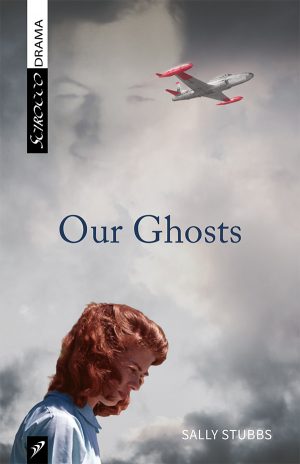 Our Ghosts$15.95
Our Ghosts$15.95 -
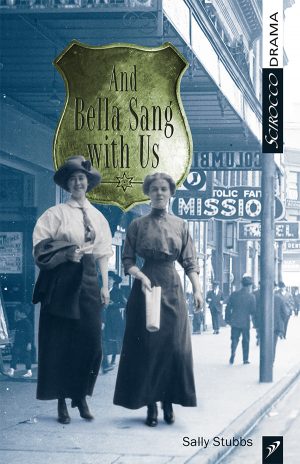 And Bella Sang With Us$9.99 – $15.95
And Bella Sang With Us$9.99 – $15.95 -
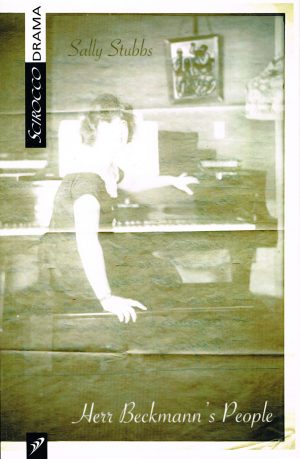 Herr Beckmann’s People$14.95
Herr Beckmann’s People$14.95 -
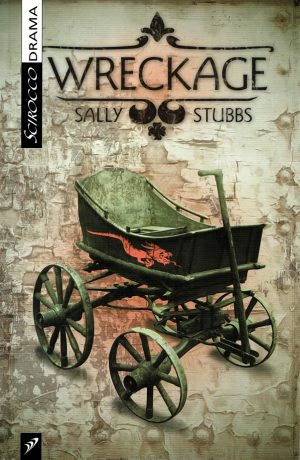 Wreckage$14.95
Wreckage$14.95

